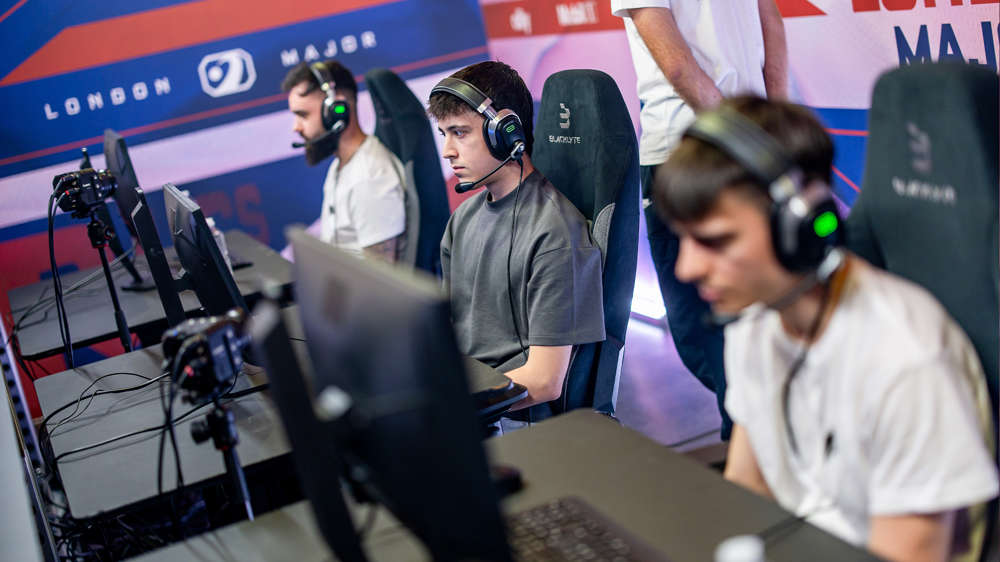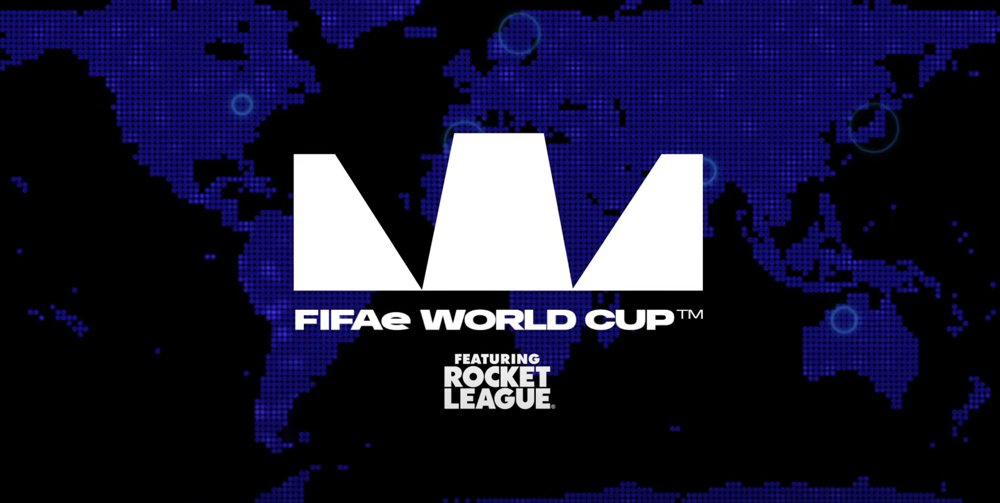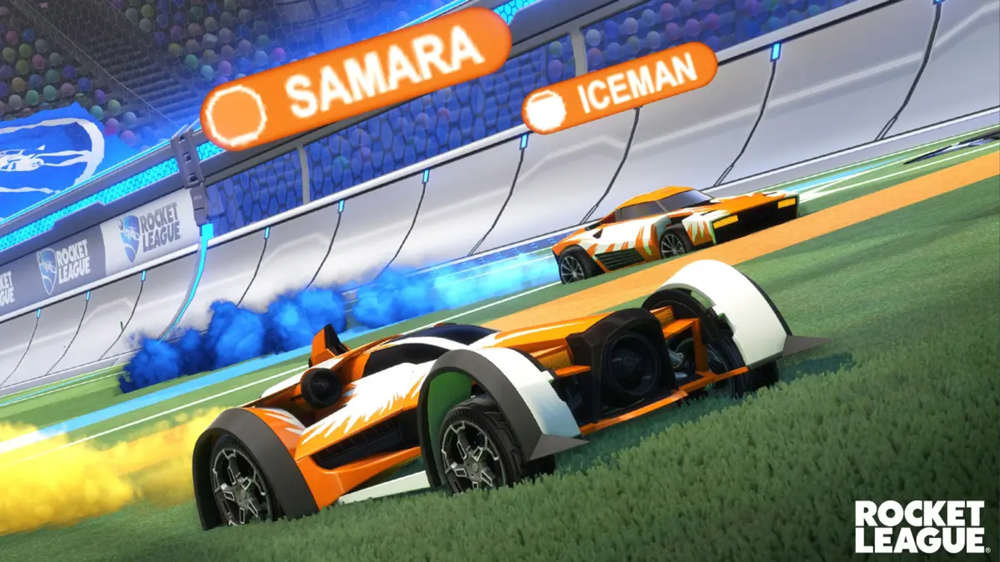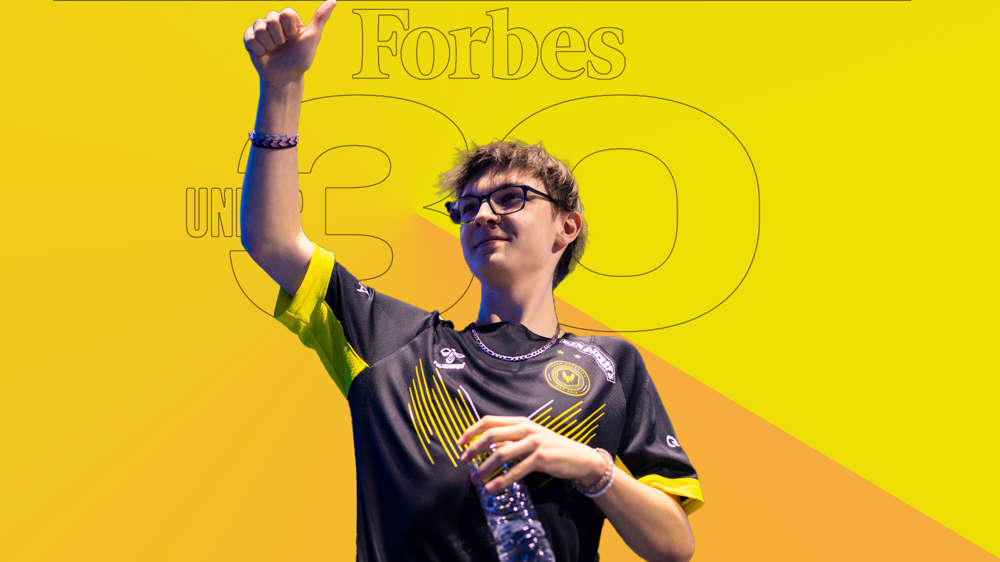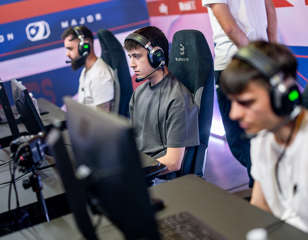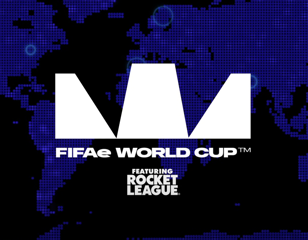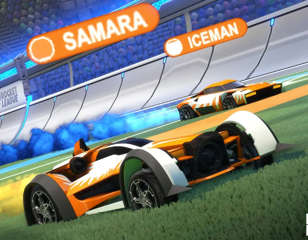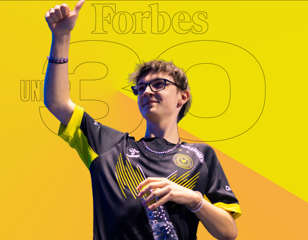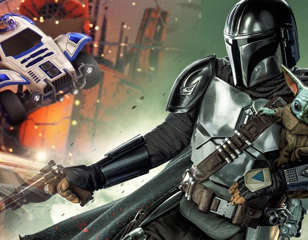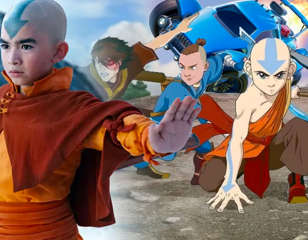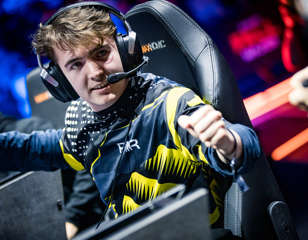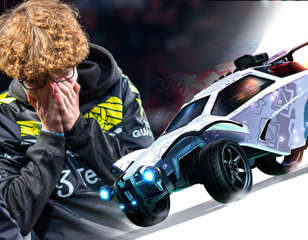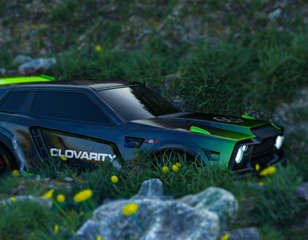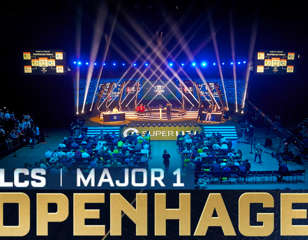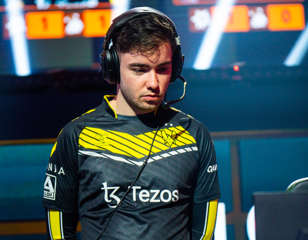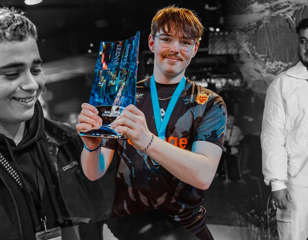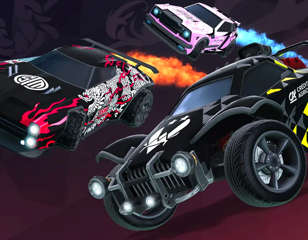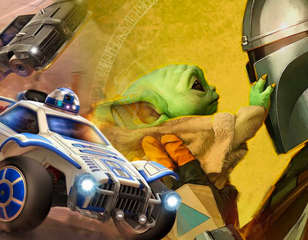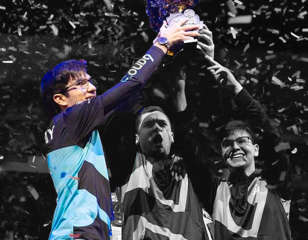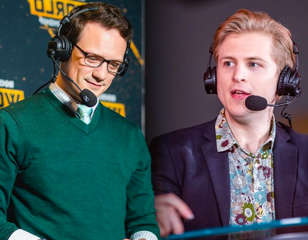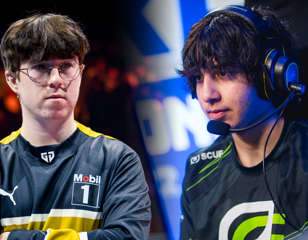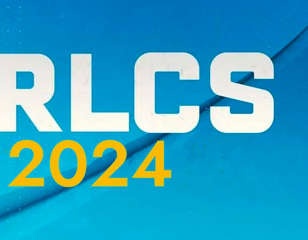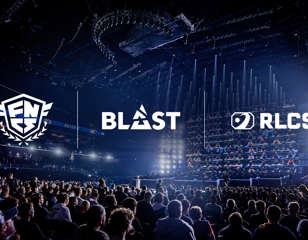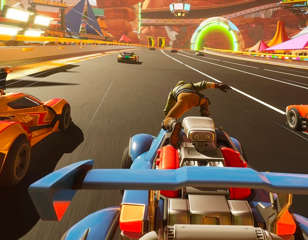Remembering RLRS
After six seasons, Rocket League's second division is no more, leaving behind an enormous legacy.

John Nolan
08th Jul 2020 17:00
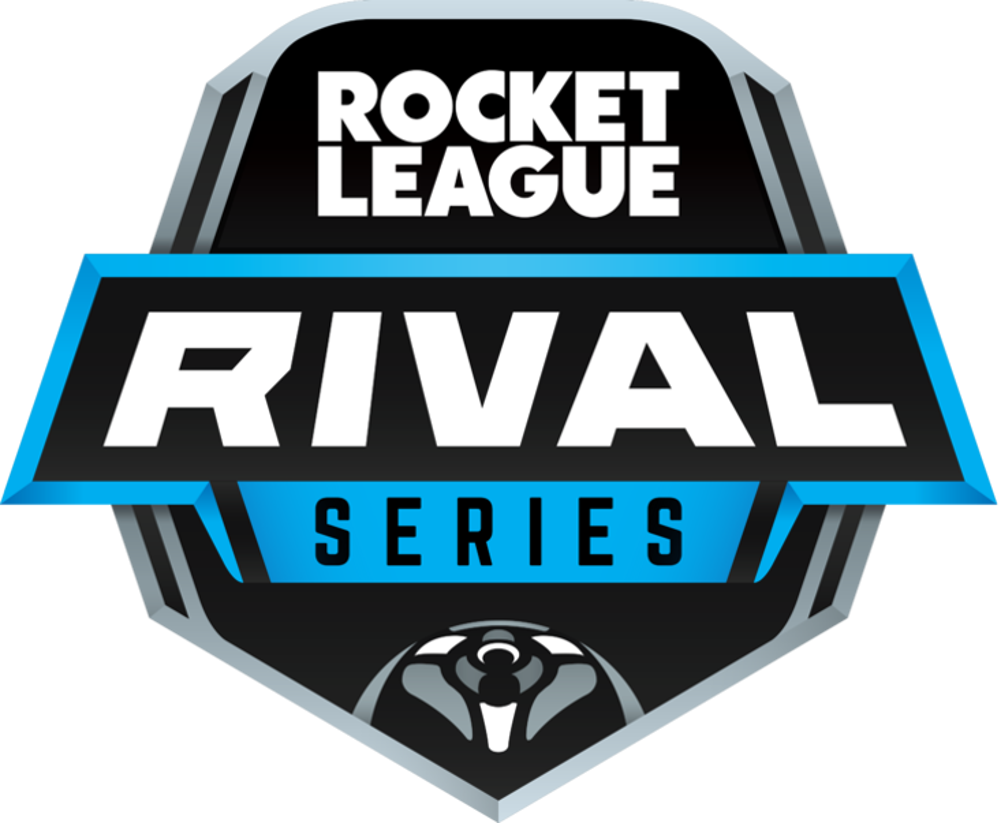
With the announcement of RLCS X, and the radical yet exciting changes to Rocket League Esports as we know it, the big thing about the tenth season is the move to an open circuit based on points, no league play for RLCS, and perhaps going under the radar, that the 2nd division, the Rival Series, is no more. Six seasons of storylines, promotions, and demotions have unfolded before us and to say it has a storied history is an understatement. So we’re here to relive the history of RLRS and its impact on the entire RLesports ecosystem.
Inception: The Safety Net
So what was life like before RLRS? Chaotic. For the first three seasons of RLCS, there were zero retained spots. You could win the world championship one season, and not even qualify for the next season, that's nearly what the original G2 roster did in season two, having to battle through the lower bracket in the March Madness-esque qualifier bracket. If you weren’t one of the eight best teams on that day, well, you were simply out of luck until the next RLCS season rolled around.
However, the seeds for stability were planted in the aftermath of the season three qualifier. Top seed for NA, Team Iris, consisting of SquishyMuffinz, Torment & Lachino would bomb out of the qualifier in 13th-16th place. While the event was significant in that it led to the eventual rise of Cloud9, it also showed how volatile the current system was, so changes came immediately. For the following season, the two sides that placed top two in their region and the eventual world champions would automatically qualify. And then came qualifiers for season four. It was announced a second-tier under RLCS would be introduced, forcing teams to keep ⅔ of their rosters between seasons, establishing a clear path to pro for amateurs and giving those who would relegate a platform to bounce back on. And thus the Rocket League Rival Series was born.
Humble Beginnings
With Psyonix bringing the esport in-house still a season away, the first season of the Rival Series was handed to Pro Rivalry League, now known as Rival Esports. Ran out of Murty Shah’s house (who would go on to join Psyonix’s esports team), the first season of RLRS has quite a distinct feel from other seasons. Many of the players are barely recognizable to a newer fan and the end result was only one promoted side in each region (pretty tame by modern standards)
Fnatic & Out of Style were the new sides to RLCS in season five, and well, they flopped. OoS was expected after Jstn’s departure but Fnatic endured a 2018 full of misery. Was this the best the Rival Series had to offer? Sure this guy called Jstn was doing big things on NRG but that was just one individual. But while Out of Style would bomb out of RLCS and Fnatic barely survived demotion, the perception that RLRS had nothing good to offer was slowly beginning to shift. Three of the top four RLRS sides between NA & EU would displace RLCS teams in the promotion-relegation tournament, and while Flyquest would nearly qualify for the world championship in their debut season, a storm was brewing down below.

Forging the Future
In season six, where Dignitas set records that may never be touched and featured Cloud9’s ultimate triumph, the latter half of 2018 is perhaps equally renowned for having two of the best league plays in history, both of which happened within the second tier. Rival sides were no longer just making up numbers, they were set on taking names. In Europe, Triple Trouble had bested world champions Dignitas to win The Play in the off-season, Method had made the semi-finals of that event, with Kassio reinvigorating the Rix Ronday/Borito B duo. Team Secret had signed FreaKii, fresh off his appearance at the world championship in London, and on paper, Savage Was a superteam, consisting of Bluey, Deevo & Alpha54. Never has the top four of any tier been so competitive and it was no surprise to see the top two sides, Triple Trouble & Savage both promoted to RLCS, replace them with Method or Secret the end result would have remained the same.
Across the pond, North America bore witness to an epic three-way dance. Splyce sought redemption after an embarrassing 6th place the season prior, The Peeps were beginning their unlikely and improbable ascent up the RLesports ladder, and top seed from open qualifiers, Bread, had the makings of one of today's best teams in the world. Eventually, it would be Splyce & Bread who would promote to RLCS, making it four for four that season, seven out of eight in 2018 for Rival Series sides in the promotion playoffs.
The significance of this season cannot be understated, as in their rookie season in RLCS, both Triple Trouble and Savage, now signed to Barcelona, would qualify for the world championship, while Bread would become Spacestation Gaming and come very close to doing the same. Their success would pave the way for teams like The Peeps, Birds and the Beez, Veloce and even the Susquehanna Soniqs last season to go really far really quickly in the RLCS. When talking to current pro player Matthew "Satthew" Ackermann on the rapid rise of these RLRS teams, he commented:
I think the biggest thing is finding your style. With both Bread & Afterthought, I feel like we had our styles down quickly and could have translated them to RLCS instantly with enough individual work. I believe teams nowadays that put in enough individual work have all the resources necessary to climb to the top level… and with the announcement of the new circuit format, I think this will allow newly created teams to get better quicker
And given that Sypical & Alpha54 might just be the two best players right now, the impact of the Rival Series on today’s players is undeniable, even if just in exposure or giving them a path to the top.

Arising Opportunities
The Rival Series wasn’t another event for players to aim for, it’s also had a profound impact on the landscape of casting and casters in Rocket League. A new league meant new talent could get a chance on the mic on the main stream for Rocket League Esports and hone their craft. As Sean "Stax" Stackhouse put it:
“to be on a show with upwards of 40-50K people watching and you're on during primetime hours for each show in their regions? That's huge. The Rival Series was a target for casters to aim for as the next rung on the ladder to the top.. we had to be very aware of the fact that you can move down and out of the league a lot easier than you can move up. With the plethora of casters grinding to reach that level, we had to constantly work to raise the bar ourselves.”
The impact can be seen from the top down, with talent like Jorby, Achieves & Corelli having had experience in the Rival Series before progressing to the Championship Series. While many of them have had even major LAN experience before appearing in RLCS, Rival Series was still a place for them to grow and develop as talent, as Stax pointed out:
What I think the show did for all of us is open us up to a lot more critique. In your small circle of friends you're always gonna get "hey man good job that was awesome" ... even if the show was objectively awful. But now we're in front of 40K every week and suddenly the variety of feedback expands… Without the Rival Series, that process is significantly slower if it exists at all.
The Rival Series wasn’t just one broadcast however, starting in 2019, it would go back to its roots with Rival Esports, as they got to run the B Stream, ensuring every match was streamed and casted, from the open qualifiers all the way to promotion deciding series. One of the voices of the secondary broadcast was James "Irelique" Kirk, and he has fond memories of his experience on the B Stream.
“I feel like the B-Stream broadcasts offered depth that many major sports don’t even offer. Rocket League diehards, scouts and us as casters were able to fully immerse in the second tier action and it gave everyone more story and understanding behind the stars of the future.”
With RLRS expanding to ten teams in season eight, it meant even more matches and broadcasts, which in turn gave even more talent a chance to shine, particularly in the European region where struggles acquiring Visas to work in the US make life for EU casters difficult at times. As Irelique noted:
“Of course we would all love to see European talent given more of a chance on the bigger stage but I’ll always know I have a home with Rival. That’s a great comfort… It was a privilege to be brought into the team working with many excellent fellows of the field.”
An Everlasting Impact
Three years and six seasons of action means it's inevitable that there's been a ton of memorable moments in the history of the Rival Series, we asked some of our guest contributors and writers for a couple of their favourite moments in the history of RLRS.
James Kirk - Irelique, Caster:
Solary vs Notorious Legion from this past season. It was one of my favourite series to watch. Team Echo Zulu, (now Notorious Legion) the bubble team, vs. Solary, the surprise package of the season. The series was dominated by Solary from the off, then Notorious Legion pulled it back to Game 5. It was so tense and then this glorious Hail Mary pass into a sensational redirect to win the game with seven seconds to go. This series was Rival Series through and through. Intense, great goals and a moment of magic to seal the deal. All featured on Rival Esports with myself and Face the lucky casters of the day.
Matthew Ackermann - Satthew, Pro Player:
My favourite RLRS moment was starting 9-0 in games with Bread in our season, as we had a few doubters in Reddit and some other pros/semi-pros, so it was nice to get off to a perfect start that season.
Ben Hurst - notblondemonkey, Journalist:
For me, it's got to be Complexity's Promotion back in Season 7. Ironically, the most exciting series of that run didn't actually involve Complexity, it was during their week off. If ARG beat ZeNoMoon, they'd knock COL out of Promotion Tournament contention, but they missed a bunch of overtime chances whilst 2-1 up in the series to take it to a fifth game. When ZeNoMoon took the lead with 10 seconds left in game five I jumped out of my chair, it was incredible. As soon as Complexity took the field again, you knew they were getting promoted. They only lost two games on their way to promoting, despite basically disbanding just a couple of months before.
Sean Stackhouse - Stax, Caster
My favorite memory from the Rival Series is literally everything involving The Peeps. From promising Gyro that as long as he made the Rival Series I'd make sure I got back on for another season to cast their games, celebrating in the green room when they made it, and their epic match with Splyce the first time around. Then they came back, absolutely took care of business, played their way into the Promo Tourney. Both them AND Birds & the Beez qualified, and I remember having to listen to the stream through the stereo in my car. And right before The Peeps got signed and went into the RLCS, they pulled one more rabbit out of their hat and took down Dreamhack. That team started in community tournaments, played their way into the Rival Series, ran it back after just missing a top-2 finish, and became a force to be reckoned with at the top of the competitive scene. I feel like they're the example to follow in NA, and I enjoyed every second of that crazy ride.
John Nolan - John_aka_Alwayz, Journalist
While I’m very fond of season six in both regions, the very last series in RLRS history between Charlotte Phoenix & Chaos was something else. In what potentially might be CorruptedG’s last series in RLCS, he went mega to not only save Chaos’ status as an RLRS side, but cruelly deny Charlotte their chance to auto-promote to RLCS in a game five overtime, thus handing 1st place to an unlikely Omni Nation roster.
So there it is, that's Rival Series done and dusted. From September 8th 2017 to March 27th of 2020, countless hours of entertainment, and a legacy that's ultimately ended in having an unspeakable impact on the entirety of Rocket League Esports. It may be sad that it's over, but let’s just be glad it happened to begin with.
Images via ZeeboDesigns

About The Author
John Nolan
John Nolan was a freelance contributor to GGRecon.
